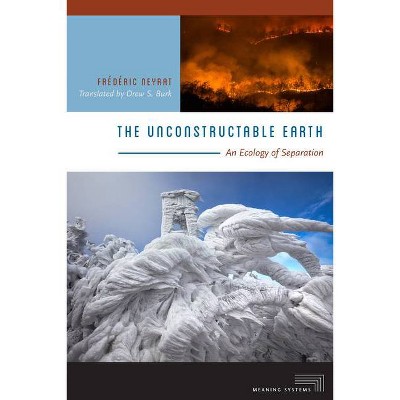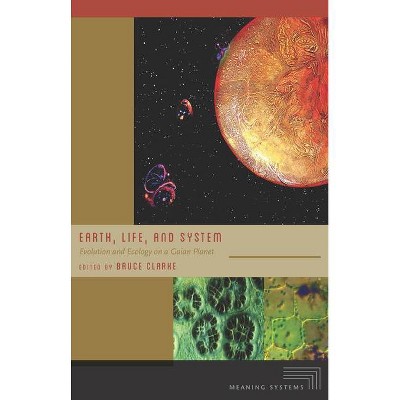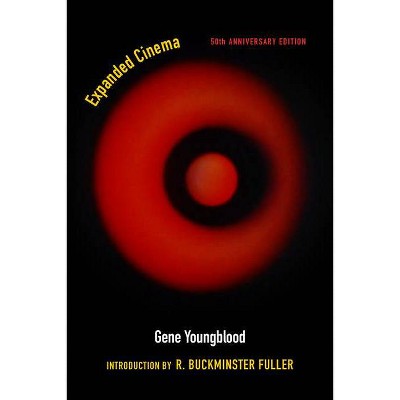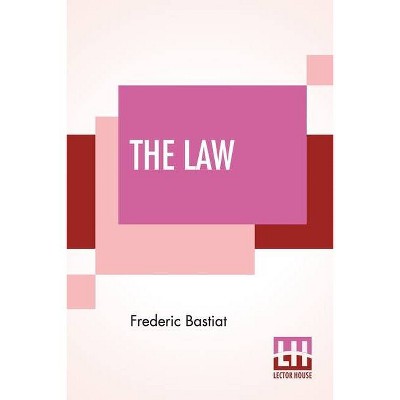The Unconstructable Earth - (Meaning Systems) by Frédéric Neyrat (Paperback)

Similar Products
Products of same category from the store
AllProduct info
<p/><br></br><p><b> About the Book </b></p></br></br>This book contributes to the <i>environmental humanities</i> field by offering an analysis of the Anthropocene fantasy: the idea that the Anthropocene is an opportunity to remake our terrestrial environment thanks to the power of technology. The author argues that the earth always escapes the human desire to remake and master it.<p/><br></br><p><b> Book Synopsis </b></p></br></br><p><b>Winner, Grand Prize, French Voices Award for Excellence in Publication and Translation</b> <p/>The Space Age is over? Not at all! A new planet has appeared: Earth. In the age of the Anthropocene, the Earth is a post-natural planet that can be remade at will, controlled and managed thanks to the prowess of geoengineering. This new imaginary is also accompanied by a new kind of power--geopower--that takes the entire Earth, in its social, biological and geophysical dimensions, as an object of knowledge, intervention, and governmentality. In short, our rising awareness that we have destroyed our planet has simultaneously provided us not with remorse or resolve but with a new fantasy: that the Anthropocene delivers an opportunity to remake our terrestrial environment thanks to the power of technology. <p/>Such is the position we find ourselves in, when proposals for reengineering the earth's ecosystems and geosystems are taken as the only politically feasible answer to ecological catastrophe. Yet far from being merely the fruit of geo-capitalism, this new grand narrative of geopower has also been activated by theorists of the constructivist turn--ecomodernist, postenvironmentalist, accelerationist--who have likewise called into question the great divide between nature and culture. With the collapse of this divide, a cyborg, hybrid, flexible nature has been built, an impoverished nature that does not exist without being performed by technologies that proliferate within the space of human needs and capitalist imperatives. Underneath this performative vision resides a hidden anaturalism denying all otherness to nature and the Earth, no longer by externalizing it as a thing to be dominated, but by radically internalizing it as something to be digested. Constructivist ecology thus finds itself in no position to confront the geoconstructivist project, with its claim that there is no nature and its aim to replace Earth with Earth 2.0. <p/>Against both positions, Neyrat stakes out the importance of the unconstructable Earth. Against the fusional myth of technology over nature, but without returning to the division between nature and culture, he proposes an "ecology of separation" that acknowledges the wild, subtractive capacity of nature. Against the capitalist, technocratic delusion of earth as a constructible object, but equally against an organicism marked by unacknowledged traces of racism and sexism, Neyrat shows what it means to appreciate Earth as an unsubstitutable becoming: a traject that cannot be replicated in a laboratory. Underway for billions of years, withdrawing into the most distant past and the most inaccessible future, Earth escapes the hubris of all who would remake and master it. <p/>This remarkable book, which will be of interest to those across the humanities, natural sciences, and social sciences, from theorists to shapers of policy, recasts the earth as a singular trajectory that invites humans to turn political ecology into a geopolitics.</p><p/><br></br><p><b> From the Back Cover </b></p></br></br><p>"A vitally important book that stakes out a new position in the environmental humanities. This is not a book of policy recommendations, but rather of basic foundational concerns that any actually policy will have to address and to be answerable to."--Steven Shaviro, Wayne State University <p/>"This is a book of great interest that addresses a topic of considerable concern among environmentalists in North America and Western Europe today--how to find a third way between 'eco-modernism' and an organic and holistic nature."--Ursula Heise, UCLA <p/>"An unflinching critique of geoengineering, this book offers hope in a sliver of uncolonized, unmapped, unconstructed space and time, amid the super-storms of ideology, the teleology of historicism, and the bad faith of political actors with vested interests. Planet earth is not an object or a subject, but a trajectory in time and space toward anti-production, entropy, perhaps extinction--cause for a new political ecology in the time of 400+ ppm of C02."--Karen Pinkus, Cornell University <p/>The Anthropocene has both described and rendered a post-natural planet that can be remade at will through the prowess of geoengineering. This new imaginary is accompanied by a new kind of power--geopower--that takes the entire Earth, in its social, biological and geophysical dimensions, as an object of knowledge, intervention, and governmentality. <p/>Not merely the fruit of geo-capitalism, this new grand narrative has also been activated by theorists of the constructivist turn--ecomodernist, postenvironmentalist, accelerationist--who have likewise called into question the divide between nature and culture. Denying all otherness to the Earth by internalizing nature, constructivist ecology thus finds itself unable to confront the geoconstructivist denial of nature and its attendant project to replace Earth with Earth 2.0. <p/>Against both positions, Neyrat stakes out the importance of the unconstructable Earth, proposing an "ecology of separation" that acknowledges the wild, subtractive capacity of nature. Against the technocratic delusion of a constructible Earth, but equally against an organicism marked by unacknowledged traces of racism and sexism, Neyrat shows what it means to appreciate Earth as an unsubstitutable becoming: a traject that cannot be replicated in a laboratory. Underway for billions of years, withdrawing into the most distant past and the most inaccessible future, Earth escapes the hubris of all who would remake and master it. <p/><b>Frederic Neyrat</b> is Associate Professor of Comparative Literature at University of Wisconsin-Madison. <p/><b>Drew S. Burk</b> is the translator of more than dozen books in continental philosophy and theory.</p><p/><br></br><p><b> Review Quotes </b></p></br></br><br>Neyrat makes an ambitious, imaginative, and provocative case against the rampant trend in the West towards techno-optimism...-- "Choice"<br><br>"An unflinching critique of geoengineering, this book offers hope in a sliver of uncolonized, unmapped, unconstructed space and time, amid the super-storms of ideology, the teleology of historicism, and the bad faith of political actors with vested interests. Planet earth is not an object or a subject, but a trajectory in time and space toward anti-production, entropy, perhaps extinction--cause for a new political ecology in the time of 400+ ppm of C02."<b>---Karen Pinkus, author of Fuel: A Speculative Dictionary, <i></i></b><br><br>"This is a book of great interest that addresses a topic of considerable concern among environmentalists in North America and Western Europe today--how to find a third way between 'eco-modernism' and an organic and holistic nature."<b>---Ursula Heise, University of California, Los Angeles, <i></i></b><br><br>"This is a vitally important book that stakes out a new position in the environmental humanities. Neyrat offers both a critique of current tendencies in ecological thought and positive proposals for a different philosophical approach. This is not a book of policy recommendations, but rather of basic foundational concerns that any actually policy will have to address and to be answerable to. A powerful and closely reasoned argument that anyone concerned with the fate of the Earth needs to take into account."<b>---Steven Shaviro, Wayne State University, <i></i></b><br><p/><br></br><p><b> About the Author </b></p></br></br><b>Frédéric Neyrat (Author) </b><br> <b>Frederic Neyrat</b> is Associate Professor of Comparative Literature at University of Wisconsin-Madison. He is editor of <i>Alienocene</i>, an online journal that charts the environmental humanities and contemporary theory. His first book in English (following thirteen in French) is <i>Atopias: Manifesto for a Radical Existentialism</i> (Fordham, 2018). <p/><b>Drew S. Burk (Translator) </b><br> <b>Drew S. Burk</b> is the translator of more than dozen books in continental philosophy and theory. <p/>
Price History
Cheapest price in the interval: 30 on November 8, 2021
Most expensive price in the interval: 30 on December 20, 2021
Price Archive shows prices from various stores, lets you see history and find the cheapest. There is no actual sale on the website. For all support, inquiry and suggestion messages communication@pricearchive.us



















